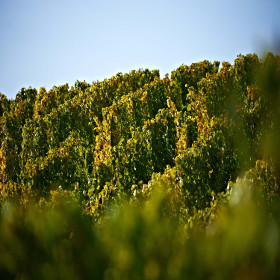Winery Dieter Michel
Our family business is located in Hochborn, a small village, which is about 280 m above sea level to the highest municipalities of Rheinhessen. The high plateau borders on the southern slopes of Wonnegau, where our favorite vineyard sites are located. The tradition of viticulture has been maintained in our farm for generations. That's how our son Sebastian jumped over the spark. After training as a winemaker, he studied viticulture and oenology in Geisenheim. With youthful verve and passion, he brings in many new ideas. Thus, the love of wine combines father and son - tradition and innovation. Through intensive manual work in the care of our vines in the vineyard and the utmost care in the development of the wines, we can optimally exploit the potential of our soils and our preferred climate. That it is worth the effort you can taste. Awards at the Chamber of Agriculture and at the international wine competition AWC Vienna confirm our efforts.
On the estate English and German are spoken.

















